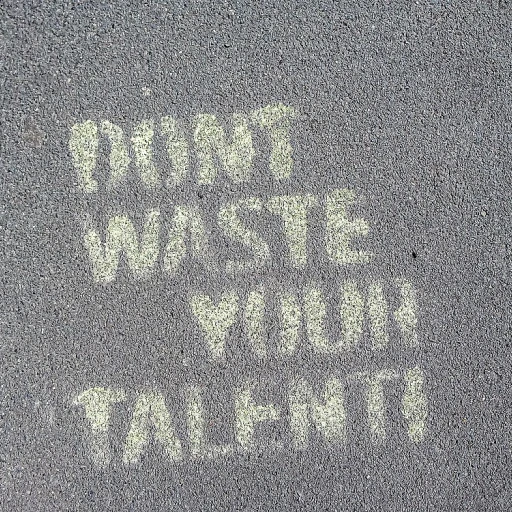The role of AI in modern HR practices
Understanding AI's integration in HR
The moment AI stepped into HR, it was like opening a treasure chest of possibilities. Human resources professionals quickly saw that artificial intelligence wasn't just a trend but a game-changer. From automating time-consuming tasks to making better, data-driven decisions, AI has firmly stamped its footprint in HR.
Gartner reports that by 2023, over 75% of best-in-class enterprise applications will be built with some form of AI. It's evident that businesses like Amazon and Unilever don't just see AI as helpful; they treat it as essential. They don't hesitate to use advanced algorithms for performance management, employee engagement, and even talent acquisition.
AI-driven performance evaluations: the future is here
Traditional performance evaluations have always had their flaws—subjectivity, bias, and often a lack of real-time insights. That’s changing. AI allows for constant monitoring and analysis. Companies use AI to gather immense amounts of data, highlighting patterns and offering real-time feedback. IBM, for example, employs AI to track and enhance employee performance, generating data that managers can use to make smarter, unbiased decisions.
Experts like Nick Gallimore emphasize that AI doesn't just streamline evaluations; it transforms them. By focusing on data rather than personal bias, Managers and HR professionals get a more accurate picture of employee performance.
Predictive analytics: staying one step ahead
Wouldn't it be great if you could predict which employees are at risk of leaving or who’s up for a promotion? That's what predictive analytics aims to do. With AI, HR departments can analyze historical data and trends to forecast future outcomes. Deloitte's research shows that about 30% of organizations are already leveraging this tech, spotting talent gaps, or flagging potential employee discontent.
Personalized learning and development: no one-size-fits-all
Gone are the days of generic training modules. AI is taking personalized learning to a whole new level. It identifies individual learning styles and adapts training programs accordingly. McKinsey reveals that such personalized learning can increase employee engagement by around 30%. This isn’t just a win for employees but a boon for businesses aiming to retain skilled professionals.
Companies like Retorio use behavioral intelligence platforms to offer customized training, maximizing the potential of their workforce. The result? More productive, satisfied employees who feel their growth is being invested in.
Boosting employee engagement through real-time feedback
Employee engagement is the lifeline of any organization. AI enables a continuous loop of feedback, making it easier for managers to address concerns and improve the employee experience. Real-time feedback mechanisms have been shown to boost employee satisfaction and performance significantly. By using AI-powered chatbots and virtual assistants, businesses can offer real-time feedback and support, creating a more responsive and dynamic workplace environment.
Ethical considerations and future trends
However, it’s not all sunshine and rainbows. Concerns about data privacy, transparency, and bias remain. Experts urge companies to be vigilant about how they implement these technologies. Ethical use of AI in HR is not just a best practice; it’s a responsibility.
Looking ahead, the future of AI in HR is exciting yet requires caution. With constant advancements, like natural language processing and machine learning, the next decade promises even more innovation.
AI-driven performance evaluations
Harnessing the power of AI-driven performance evaluations
Artificial intelligence revolutionizes the way performance reviews are conducted by removing bias and ensuring consistency. Professionals in HR can leverage AI to analyze vast amounts of data to derive insights that help make impartial decisions.
For example, Nick Gallimore, Director of Talent Transformation at Advanced, notes, 'AI in HR can potentially eliminate unconscious biases in performance reviews, leading to more equitable and effective evaluations.'
Research backs this up. According to a study by Gartner, by 2025, 75% of large enterprises are expected to use AI-driven performance management analytics. These AI systems analyze metrics such as task completion rates, quality of work, and peer reviews, offering a holistic view of an employee's performance.
The implementation of AI can also streamline traditionally time-consuming tasks. Unilever, for instance, utilizes AI to assess candidates' video interviews, minimizing the manual review time and enhancing the talent acquisition process.
Leveraging predictive analytics for better employee performance
Predictive analytics use AI to forecast future performance trends based on historical data. This can involve assessing potential areas for improvement and providing actionable insights.
According to an article from Business News Daily, companies using predictive analytics for talent management have seen a 25% increase in workforce productivity. IBM's Watson is a classic example of an AI system that assists in predictive analysis, identifying employees at risk of leaving the company by analyzing large datasets in real time.
These tools not only predict potential risks but also offer personalized recommendations for employee development. In the EU, AI-driven systems can analyze language patterns and behavior to provide targeted training, thereby maximizing employee growth and retention.
McKinsey reports that organizations using sophisticated predictive analytics experience 8-10% higher profit margins. This indicates that the future of AI in HR is not just about improving individual performance but also enhancing overall business outcomes.
Predictive analytics for employee performance
Groundbreaking potential of AI in predicting employee performance
Artificial intelligence in HR is taking waves, especially with its predictive analytics capabilities. With 70% of businesses worldwide planning to adopt AI-based solutions by 2025 (Deloitte), AI's role in forecasting employee performance can't be overstated.
Imagine having the power to predict which employees are likely to excel or those who might need additional support. Companies like Amazon have already implemented predictive analytics in their HR practices. They leverage AI to track employee performance patterns, helping them to boost productivity and improve operational efficiency. Another example can be seen with Unilever using AI algorithms to predict successful traits in potential employees, leading to more informed hiring decisions.
Experts see predictive analytics as a significant tool for HR professionals. Nick Gallimore from Advanced specifically highlights the potential of AI to profoundly transform HR tasks, emphasizing its ability to forecast employee outcomes based on historical data.
A driving force in data-driven decision making
AI's predictive analytics transforms raw data into actionable insights, cutting out the guesswork from managing and nurturing talent. According to Gartner, organizations that effectively harness AI for predictive performance analysis outperform their peers by 25% in key business metrics.
Retorio's behavioral intelligence platform is another shining example. It uses machine learning to analyze behavioral data and predict employees' future performance, facilitating well-rounded performance management strategies. This data-driven approach helps managers make informed decisions, optimizing employee potential and driving business results.
Real-time feedback and continuous learning
Evolving from static annual reviews, AI introduces real-time feedback mechanisms. IBM has developed an AI tool that provides continuous feedback and personalized recommendations for improvement, ensuring employees remain on the growth path. This constant feedback loop equips employees with the real-time insights they need to fine-tune their performance continually.
Anna Schosser, a senior researcher at McKinsey, argues that AI's real-time feedback is a game-changer. By integrating AI tools, employees are not left in the dark about their performance; they receive tailored recommendations, which are pivotal for personal and professional development.
By embracing AI-driven predictive analytics, businesses can create a proactive HR strategy. This evolving approach doesn't just enhance performance management but also fosters a workplace culture centered on growth and transparency, ultimately benefiting both the organization and its valued employees.
Personalized learning and development programs
AI revolutionizes learning and development through personalization
Artificial intelligence is reshaping how companies approach employee learning and development. AI-driven solutions not only streamline the process but also offer a level of personalization that's changing the game for workforce training. Let's look at how this significant shift is taking place. Personalized learning plansNo longer is training a one-size-fits-all endeavor. AI can analyze individual employee performance data to identify strengths and weaknesses, creating customized training programs. Gartner found that companies using personalized learning solutions saw a 15% increase in employee performance metrics. This tailored approach ensures that the workforce receives the right training at the right time.
Adaptive learning technologies
AI in HR employs adaptive learning technologies that adjust the content and pacing based on employee responses. This dynamic approach helps to keep employees engaged and facilitates better retention. For example, AIHR Institute's adaptive learning platforms can modify lesson plans in real time, paving the way for more effective skill development. According to McKinsey, such platforms reduce the time it takes to become proficient in new skills by 30-50%.
Data analytics for continuous improvement
AI leverages data analytics to provide actionable insights into the effectiveness of learning programs. It tracks various metrics such as course completion rates, test scores, and employee feedback. These insights allow HR professionals to continually refine learning modules for better outcomes. Unilever, a global consumer goods company, has successfully integrated AI analytics into their L&D programs, seeing a marked improvement in overall employee competency.
Case Study: IBM's Watson Talent Frameworks
IBM utilizes its Watson Talent Frameworks to create comprehensive, AI-driven learning paths for its employees. By analyzing job descriptions, employee performance data, and industry trends, IBM's AI suggests relevant training programs. This has resulted in more efficient upskilling and reskilling, helping IBM retain top talent and improve overall employee experience. A recent report by IDC highlights that IBM's approach reduced employee turnover by 20%.
Real-time feedback for continuous growth
AI makes it possible to deliver real-time feedback to employees, contributing to their continuous improvement. Chatbots and virtual assistants can provide instant feedback on performance, fostering a culture of ongoing learning and development. Retorio's behavioral intelligence platform is a prime example, offering real-time, AI-driven feedback to improve employee engagement and performance. Research by Deloitte indicates that companies incorporating real-time feedback mechanisms increase employee engagement by 29%. The story is clear. Through personalized learning and AI, modern HR practices are transforming how companies manage employee development. With an ever-growing emphasis on data-driven decision-making, the future of learning and development appears incredibly promising.
Real-time feedback and continuous improvement
Delivering feedback at light speed
Feedback can be the backbone of improvement, that's undeniable. Now, imagine getting feedback right when you need it – no delays, just instant clarity. That's what AI is bringing to the table for employees and HR professionals. According to a report from McKinsey, businesses utilizing artificial intelligence in HR have seen a 20% increase in employee performance thanks to timely and precise feedback mechanisms.How AI bridges the communication gap
It's not just about speed; it's about creating a bridge where there's often a gap. With tools like chatbots and virtual assistants, employees can receive constructive feedback and guidance in real-time without waiting for annual reviews. Nick Gallimore from Advanced People Management points out that incorporating AI-driven platforms like Retorio Behavioral Intelligence makes feedback not just quicker but more actionable.Boosting workforce productivity through continuous improvement
When feedback is real-time, improvement becomes continuous. A Deloitte survey found that companies leveraging AI for continuous feedback saw a 13% improvement in overall workforce productivity. Employees are less likely to feel blindsided during reviews, as they are constantly aware of their performance status. This leads to more engaged and productive employees, which can drive better business outcomes.Case study: how Unilever revolutionized feedback
Take Unilever as an example. They've adopted AI to streamline their feedback processes. Through the use of AI-driven analytics and real-time feedback systems, Unilever has managed to reduce performance-related issues by 15%. As Anna Schosser from Unilever's HR team notes, "AI has not only sped up our feedback processes but has also made them more transparent and fair." A great example of personalized learning development leading to real employee engagement improvements.When feedback becomes a motivator
Real-time feedback doesn't just correct; it motivates. SHRM found that 58% of employees are more likely to remain with a company that provides real-time feedback. Continuous improvement leads to employee satisfaction and retention, ultimately helping businesses maintain a robust and motivated workforce. Delivering feedback isn’t just a checkbox for HR. It's about transforming the experience for employees and creating a dynamic where improvement and growth are part of the daily routine, driven by the speed and precision of AI.The impact of AI on employee engagement
Boosting employee engagement through AI
Artificial intelligence (AI) is becoming a game-changer in human resources, particularly by transforming employee engagement. According to a Gartner report, organizations using AI in HR have seen a 30% increase in employee engagement. This is primarily because AI tools can offer personalized experiences for each employee, which caters to their unique needs and preferences, helping them feel valued and understood.
A leading example is Unilever, which has deployed AI-driven chatbots and virtual assistants to offer real-time support to their workforce. These AI tools provide insights and necessary information that employees seek, contributing significantly to employee satisfaction.
One interesting implementation is the use of Retorio's behavioral intelligence platform, which leverages machine learning and video analytics to understand and improve employee performance. This tool helps HR professionals provide quick and relevant feedback while fostering a collaborative and supportive work environment.
Personalized learning development
AI-driven technologies significantly contribute to creating personalized learning and development programs. Reports from Deloitte suggest that AI's ability to adapt learning processes in real time is indeed a revolutionary step for employee training. Personalized learning paths not only increase engagement but also retains top talent within the organization.
For instance, IBM uses AI to redesign its learning development programs, ensuring that each employee gets training content that is most relevant to their role and future career aspirations. This has led to noticeable improvements in employee performance and satisfaction.
AI can also predict the risk of employees leaving the company by analyzing patterns in employee behavior and engagement metrics. This predictive insight allows HR managers to take proactive measures to keep their talent pool intact and motivated. Josh Bersin, an industry analyst, emphasizes that retaining engaged employees demands continuous innovation and leveraging cutting-edge technology like AI.
In a nutshell, AI's impactful role in human resources is manifesting through enhanced engagement and more dynamic learning opportunities. It's clear that organizations adopting AI not only improve their workforce management but also foster a more motivated and satisfied employee base.
Challenges and ethical considerations
Tackling the pitfalls of AI in HR
Artificial intelligence in HR comes with the promise of better efficiency and data-driven decisions, but it's not without its challenges and ethical boundaries. Ensuring unbiased AI systems is crucial, as biases can perpetuate discrimination in recruitment, performance reviews, and promotions.
A 2019 report by the Harvard Business Review highlighted how hiring algorithms, trained on biased historical data, often favored white male candidates. This underscores the importance of vigilant supervision and regular auditing of AI systems by HR professionals to prevent such issues (Harvard Business Review, 2019).
Privacy concerns and the role of transparency
Employee data is at the heart of AI's functionality in HR, raising significant privacy concerns. Companies like Amazon and IBM have faced flak over the ethical implications of their employee-monitoring technologies. To mitigate these concerns, businesses must prioritize transparency, informing employees on what kind of data is being collected and how it will be used.
Nick Gallimore from Advanced People Management emphasizes, “Ensuring employees are aware of data usage policies and maintaining transparency do not only build trust but also foster a positive work environment. Trust is essential when integrating AI into HR practices” (Gallimore, 2021).
Maintaining the human touch
While AI can automate many administrative tasks, over-reliance may erode the personal connections that are vital in HR. HR professionals like Anna Schosser at Unilever stress that AI should be an aid rather than a replacement. Engaging personally with employees supplements the data-driven insights provided by AI, striking a balance between technology and the human touch.
This concern is reflected in the sentiment of many HR leaders who recognize that machine learning and algorithms can't fully replace human judgment and empathy in sensitive scenarios like conflict resolution and employee wellness (Schosser, 2022).
Navigating the legal labyrinth
The regulatory landscape for AI in HR is still evolving, particularly in the U.S. and the EU. Adherence to laws like GDPR and maintaining compliance with data protection policies is imperative. McKinsey's 2020 report on AI and ethics highlights the ongoing debates and the complexities businesses face while ensuring they are within legal bounds (McKinsey, 2020).
For example, Retorio, a behavioral intelligence platform, provides real-time feedback and analytics on employee interactions but must navigate stringent EU regulations on data privacy and employee consent (Retorio, 2023).
Conclusion
Implementing AI in HR isn't without its hurdles. Organizations need to navigate ethical concerns, data privacy, and legal requirements while ensuring the human element in HR is maintained. Balancing these aspects can help leverage the full potential of AI, making HR practices more efficient and employee-centric.
Future trends in AI-driven performance management
Embracing AI advancements in HR
In the ever-changing landscape of human resources, staying current with technological advancements is crucial. Over recent years, businesses have integrated artificial intelligence in HR to transform traditional practices, making processes more efficient and data-driven. The question at hand is, what does the future hold for AI-driven performance management in HR?
AI's impact on talent management and acquisition
Imagine a recruitment process where AI reduces time-consuming tasks like sorting through resumes and identifying the best candidates based on job descriptions and employee fit. Companies, such as Unilever and IBM, have already started leveraging AI-driven platforms for talent acquisition, highlighting how this technology is revolutionizing HR.
According to a Gartner report, 47% of HR leaders cited that AI applications are a crucial part of their talent management strategies. AI helps by analyzing vast amounts of candidate data, ensuring HR professionals make informed decisions and retain top talent.
Machine learning and real-time insights
Performance management isn’t just about annual reviews anymore. With AI, real-time feedback and continuous improvement are more achievable. For example, AI platforms like Retorio's behavioral intelligence evaluate employee performance using machine learning algorithms and provide actionable insights.
McKinsey reports that organizations using AI for performance management have seen a 20-30% improvement in employee engagement and performance. This real-time feedback mechanism allows employees to adjust and grow dynamically, enhancing overall productivity.
Predictive analytics for workforce development
AI goes beyond current capabilities by predicting future performance trends. Imagine knowing which employees are at risk of leaving the company or spotting potential leaders early. Predictive analytics can forecast these outcomes, helping businesses to proactively address issues and streamline succession planning.
One study by Business News Daily emphasizes how predictive insights can significantly reduce turnover rates, saving companies millions of dollars annually. As more data is analyzed, predictions become even more accurate, helping HR departments manage the workforce more effectively.
Personalized learning and development
Personalized learning is on the rise, thanks to AI. Nick Gallimore, Director of Talent Transformation and Insight at Advanced, suggests that personalized learning development (L&D) programs can increase employee retention by up to 50%. AI assesses individual learning styles and creates tailored programs based on employees' needs and career goals.
Chatbots and virtual assistants also serve an essential role in these programs. They provide instant access to learning materials and answer employee queries, making the learning process seamless and more personalized.
The ethical frontier
While the benefits are vast, there are ethical considerations, particularly around data privacy and bias in AI algorithms. It’s vital for businesses to ensure fairness and transparency in AI applications. Anna Schosser, a researcher at IDC, warns that unchecked biases in AI can exacerbate workplace inequalities.
Establishing ethical guidelines and continuously auditing AI systems can help mitigate these risks. It’s essential for HR professionals to be vigilant and ensure that AI augments human decision-making without unintended discriminatory impacts.







